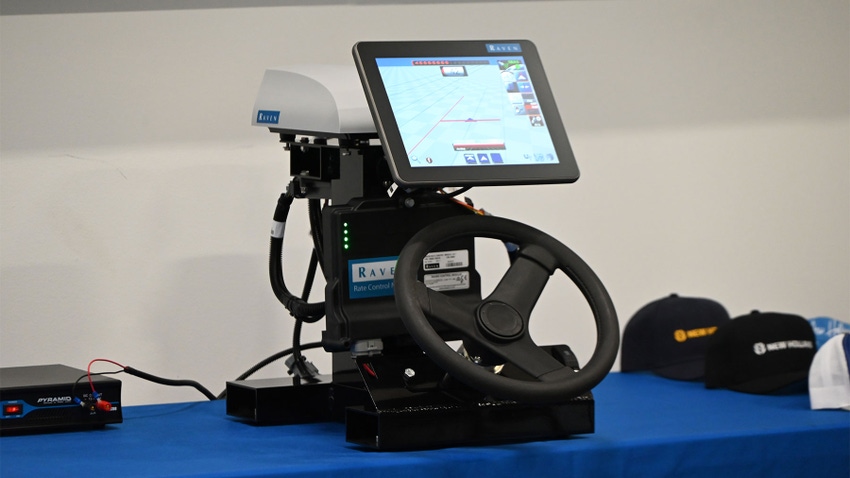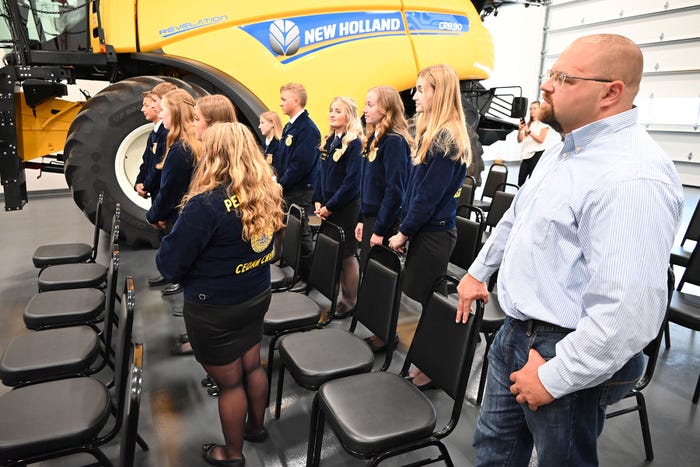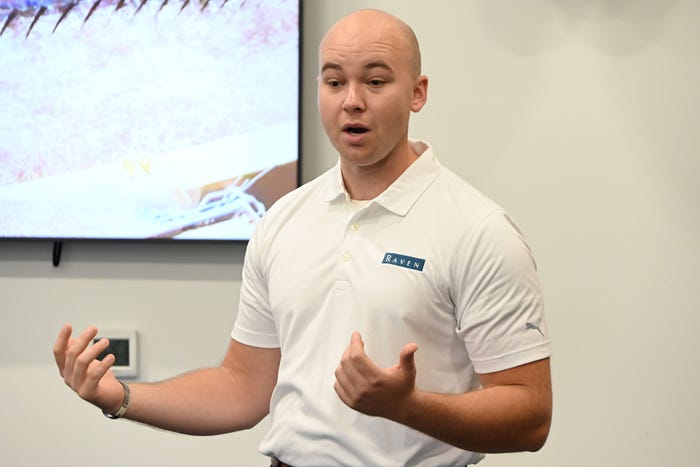
I make no secret of the fact that I didn’t grow up on a farm. I only fell in love with the business after I graduated college in the mid-2000s.
But I would have benefited from a little farm immersion when I was younger. If only I had known about modern agriculture back then, who knows where I would have ended up? Maybe I would have been a mechanic or precision ag technician. Maybe I would have gotten into food sciences. Heck, maybe I would have become a farmer!
I can’t turn back the clock, but I know enough about the business now that I can recognize a good thing when I see it, especially when it comes to teaching our next generation of ag leaders and farmers.
Case in point, I was recently invited to Messick’s Equipment in Mount Joy, Pa., for the presentation of a precision ag simulator to Cedar Crest High School’s FFA chapter by New Holland and Raven. The simulator, complete with Raven’s Viper 4+ display and RS1, the company’s three-in-one precision ag sensor, is one of 11 being donated to schools and FFA chapters across the country. Cedar Crest FFA got the first one.
Hundreds of schools applied for the simulators last year, and the winners were selected earlier this year. They are being shipped to schools in time for the start of the new school year.
Ben Sheldon, who manages Raven’s independent sales channels, says the simulators are being donated to help students better understand modern agriculture and to see technology farmers use every day. The company is providing learning modules — the same modules provided to dealers and dealer tech staff — free to each school with a simulator.

FIRST TO GET IT: Phil Haussener, the Cedar Crest FFA advisor, accepted the Raven simulator during a recent event at Messick’s Equipment. He says the simulator will be a great fit for his classrooms. He estimates that 90% of the 180 students enrolled in agricultural classes are from a non-ag background. A simulator like this could really be eye-opening to what modern agriculture is all about.
Phil Haussener, the Cedar Crest FFA advisor, says the simulator will be a great fit for his classrooms, albeit for different reasons. He estimates that 90% of the 180 students enrolled in agricultural classes at the high school come from a non-ag background. For those non-aggies, a simulator like this will really be eye-opening to what modern agriculture is all about.
I always find technology like this eye-opening — and really cool — when I go to Farm Progress Show, and I’ve been covering this stuff for several years. Imagine how eye-opening this will be for someone who has never seen it.
For his ag students, Haussener sees it as a way for them to see how advanced precision ag has become and how it can help a farmer be more efficient and environmentally sound.
He also sees it as a way to improve his own teaching. For example, he thinks the simulator could make a topic such as Integrated Pest Management more tangible for his students.

FILLING A NEED: Ben Sheldon, who manages Raven’s independent sales channels, says the simulators are being donated to help students better understand modern agriculture and to see technology farmers use every day. The company is providing learning modules — the same modules provided to dealers and dealer tech staff — free to each school with a simulator.
However it is used, I hope the school makes good use out of it. We need to teach new generations of aggies about modern agriculture and open their eyes to career opportunities.
A simulator isn’t the real thing, but it’s close enough. I just wish I would have had this in my classroom.
About the Author(s)
You May Also Like






